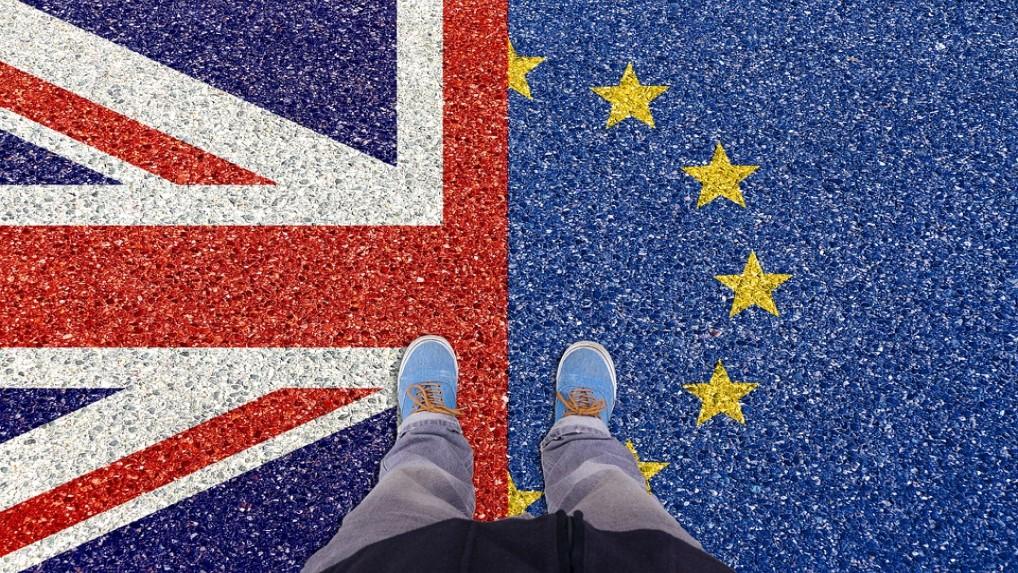An article by Ukrainian Institute London’s Director Marina Pesenti published by Ukrainian weekly Novoye vremya, 14 Mar 2016.

AUTHOR
Marina Pesenti, Director, Ukrainian Institute London.
“What are you doing here? The EU should be blamed for stoking a war in your country!” A stylish-looking Brit threw these words into the faces of Ukrainian protesters picketing in support of Nadia Savchenko, a Ukrainian pilot, next to the Houses of Parliament. Further conversation revealed this passer-by to be a staunch supporter of Brexit, a strange new word in the English language, blending “Britain” and “exit“. Brexit is in all the media headlines. The issue of EU membership will be voted on in the UK national referendum on June 23.
Just two years ago, Ukrainian people marched to the barricades under EU banners. In the UK, the EU is associated with boring bureaucrats dictating how much butter there should be in butter.
Thousands of Ukrainians living in Britain are taken aback by the gap in the perception of Europe they hold and that held by the British. Just two years ago, Ukrainian people marched to the barricades under EU banners. In the UK, the EU is associated with boring bureaucrats dictating how much butter there should be in butter. The first messages by the IN camp appealed to Brits’ pockets. “Being in the EU means lower prices in our shops because it’s cheaper to trade – saving you on average £450 a year,” said a leaflet pushed through every household’s door back in January.
But dry numbers don’t have much of an appeal, and just in a few weeks the OUT campaign’s messages started bearing a resemblance to Russian propaganda narratives. Its supporters tended to pin the blame for everything on the EU: high unemployment, uncontrolled migration, crises and wars – in Greece, Syria, Ukraine, and Libya. “The EU has become a source of instability and uncertainty,” said Michael Gove, the Justice Secretary and once close friend of Prime Minister David Cameron. Cameron, who made the difficult decision to hold a referendum, all of a sudden found himself on the other side of the fence to many frontline politicians and ministers of his own Cabinet.
The most prominent of these is Boris Johnson, the popular London Mayor and media darling with an unruly blonde crop. Even though Johnson’s position on the UK’s membership of the EU has, as he himself reportedly put it, “veered all over the place, like a shopping trolley,” his decision to join the OUT camp has considerably boosted its chances. Even more surprisingly, this isolationist path was made by the mayor of one of the world’s most cosmopolitan and diverse cities, whose very openness to the world became key to its prosperity.
Experts have warned that investment will shrink as a result. It will take years to re-negotiate trade treaties with the EU.
As far as business is concerned, it has clearly stated it is against Brexit. Experts have warned that investment will shrink as a result. It will take years to re-negotiate trade treaties with the EU. The US, China and India have already stated that they prefer trading with the EU as a bloc rather than with the UK on its own. There is a further political undercurrent to it too: Brexit will almost unavoidably lead to another referendum on Scottish independence, which this time the Scottish National Party would expect to win. Brexit might result not just in a weakened EU, but it might lead to the end of the United Kingdom as we know it.
Even more baffling, therefore, are the polling results which show that nearly 40% of Britons will be supporting Brexit, and a slightly lower number will be voting against. Just under half of the Conservative party’s MPs are pro-Brexit. Regardless of the vote’s outcome, this will be a huge shock for the party that will weaken it. So who will benefit from it?
“Only one world leader wants Brexit: Vladimir Putin,” writes Ben Judah.
“Only one world leader wants Brexit: Vladimir Putin,” writes Ben Judah. “We may not have noticed it in little England, but Russia is stress-testing the EU. The Kremlin, chafing under EU banking sanctions imposed to punish it for invading Ukraine, is pushing as hard as it can to snap European resolve.” Kremlin mouthpieces RT (Russia Today) and Sputnik are working to this end, and Russia’s embassy in the UK is actively engaged in the campaign.
The supporters of the IN camp have three months left to convince their compatriots to step back from the brink and realise that without the UK the EU will be left weakened, while Britain will be marginalised in Europe, all to serve lofty slogans to build a ”Switzerland model”, and very much to the pleasure of the Russian leadership.
This opinion piece appeared in the Ukrainian weekly “Novoye vremya“, 14 Mar 2016.


